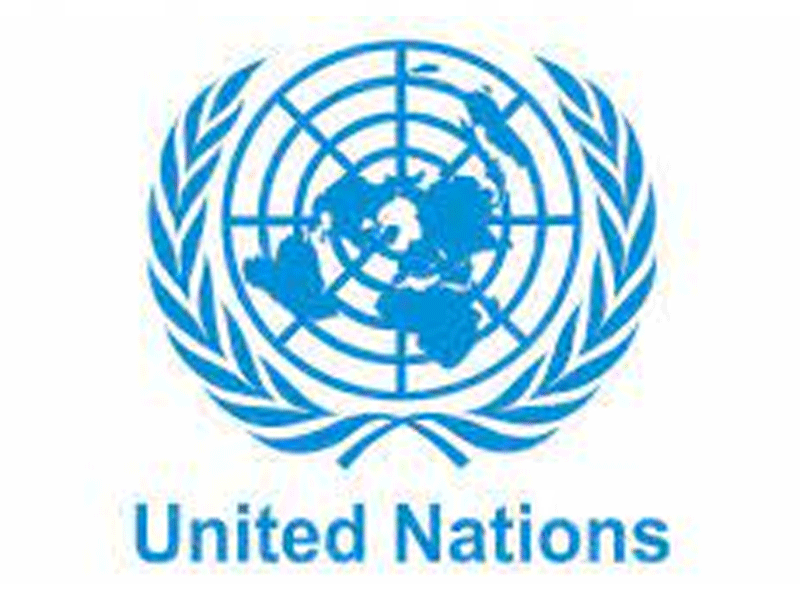Our Terms & Conditions | Our Privacy Policy
Nigeria Needs Development, Peace Building Efforts to Resolve Crises, Says UN – THISDAYLIVE
Michael Olugbode in Abuja
The United Nations has said the solution to crises across Nigeria is development and peacebuilding efforts more than humanitarian interventions.
Speaking at the launch of the 2025 Nigeria Humanitarian Needs and Response Plan at the UN House in Abuja, the United Nations Resident and Humanitarian Coordinator in Nigeria, Mohammed Fall, lamented that humanitarian assistance continues to reduce worldwide and efficiency is required in managing the fund available.
Fall said: “Following the floods in Maiduguri and across Nigeria, we saw humanitarian and development partners, alongside the private sector pulling together to alleviate people’s suffering.
“Overall in 2024, the Humanitarian Response Plan for North-east Nigeria received 57 per cent in funding (about $527 million out of the total ask of almost $927 million) to respond to the critical needs of 4.4 million people out of 8.1 million people in need of life-saving humanitarian assistance.“
He added that there are humanitarian needs across Nigeria due to a diverse range of causes — from food insecurity to internal displacement due to intercommunal clashes, as well as climate change impacts among other risks, revealing that: “In 2025, food insecurity across Nigeria is projected to affect over 33 million people during the lean season, with alarming levels of acute malnutrition threatening the lives of millions of children. These figures underscore the gravity of the challenges we face.
“But humanitarian interventions are not the solutions for these problems across Nigeria. What is required is development and peacebuilding efforts, combined with humanitarian action, to address the underlying causes of these needs.
“In Borno, Adamawa and Yobe States, the 2025 HNRP aims to provide life-saving assistance to 3.6 million out of 7.8 million people requiring urgent assistance with a financial requirement of a little over US$900 million.The HNRP prioritizes women, children and persons with disabilities. We cannot ignore the stark reality of declining global funding for humanitarian efforts.
“We have to become more efficient in terms of delivery of humanitarian action. We have to consider carefully who delivers what and how to make sure that scarce resources are put to the best possible use. This may include anticipatory action, acting before disaster strikes to mitigate the impact and directly funding the local partners who often ultimately deliver the assistance.
“Together, we must continue making a difference in the lives of affected people.
“I urge donors to close the funding gap and appeal to the private sector and the government to play a more significant role in supporting humanitarian action.
“I also reaffirm the United Nations’ unwavering commitment to working hand in hand with the Nigerian Government, partners, and communities to alleviate suffering and reduce affected people’s vulnerability.”
Meanwhile, the Federal Government has approved N4 billion allocation for conditional cash transfers to support vulnerable households across Nigeria.
The Minister of Humanitarian Affairs and Poverty Reduction, Prof. Nentawe Yilwada, made the revelation at the launch of the 2025 Nigeria Humanitarian Needs and Response Plan (HNRP) and outlined that the initiative is aimed at addressing the nation’s growing humanitarian challenges.
He noted that the programme will assist at least 10 million displaced households, focusing on the most vulnerable members of society, adding that the cash transfers are scheduled to begin in February and run through April, targeting families affected by displacement, particularly in the North-east.
Yilwada said: “We are prioritising women, especially widows, pregnant women, and those with disabilities. The experiences of displaced women, particularly those facing pregnancy or disability, are especially challenging. We understand these vulnerabilities and will continue to support those who are most in need.
“The president has approved the ministry’s plan to begin paying conditional cash transfers to 10 million displaced households between February and April. This initiative aims to support those most in need, particularly vulnerable families affected by displacement.
“In addition to the cash transfer programme, the government has approved N2 billion for interest-free loans to farmers in rural areas to enhance food production and self-sufficiency.
“Additionally, the government has allocated N2 billion to provide interest-free loans to farmers in rural communities.”
Yilwada also noted that: “These loans will range from N300,000 to N400,000 per household, helping farmers access necessary resources and linking them to market opportunities.”
Images are for reference only.Images and contents gathered automatic from google or 3rd party sources.All rights on the images and contents are with their legal original owners.



Comments are closed.